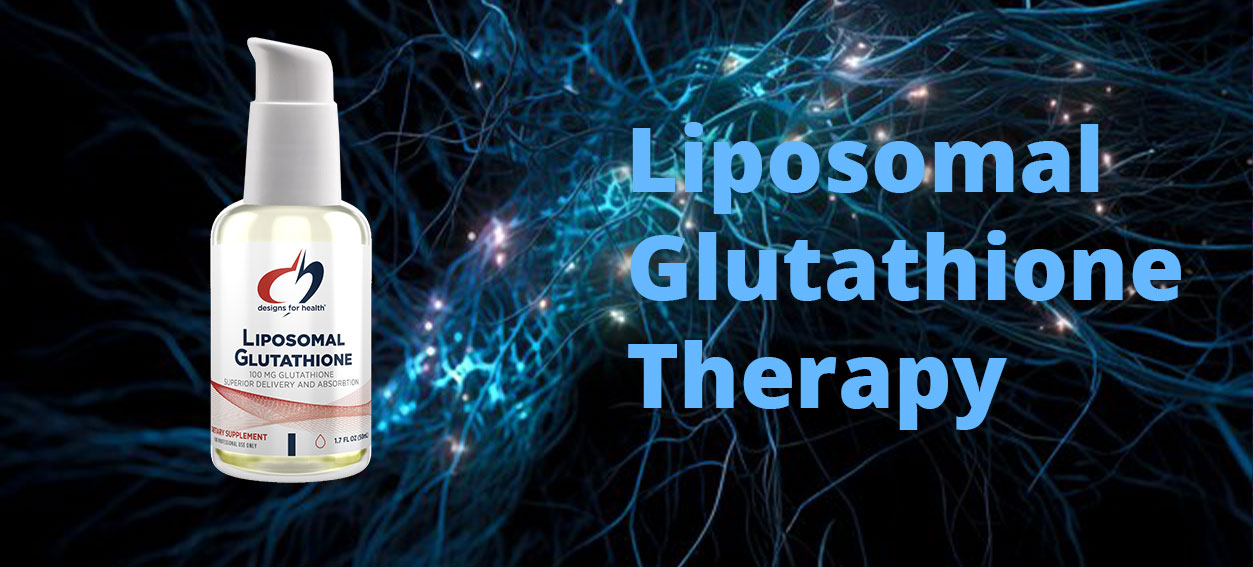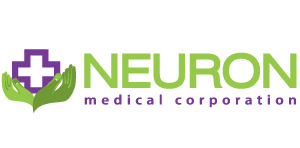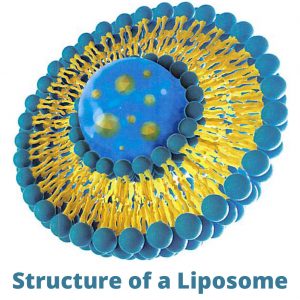
Neuron Medical Offer
Liposomal Glutathione
Therapy
Liposomal Glutathione
Antioxidant formula using liposomal technology for superior absorption and delivery
Benefits of Glutathione
✔️ Reduces free radical-induced oxidative stress
✔️ Helps optimize glutathione-dependent hepatic detoxification pathways, including the enhancement of heavy metal clearance
✔️ Supports immune function
✔️Offers antiviral properties
Glutathione
Glutathione (GSH) is a tripeptide thiol (sulfur-containing) molecule synthesized inside every cell in the human body. It is composed of the amino acids glutamine, cysteine and glycine, and is found in the highest levels in the liver, eyes, spleen, pancreas and kidneys. Glutathione is the single most protective antioxidant produced by the body and is therefore the most important, as it protects cells against oxidative stress from dietary and environmental free radicals as well as those resulting from normal metabolic processes. It protects vulnerable DNA from damage, while also serving as a key factor in healthy detoxification. This is the role glutathione is perhaps best known for, making it an indispensable tool for functional medicine practitioners helping patients with complex cases involving heavy toxicant burdens that affect the efficient functioning of organs and tissues throughout the body. Glutathione is instrumental in liver detoxification reactions, via phase 11 conjugation with glutathione, itself, as well as serving as a source of sulfur for sulfation reactions. Maintaining adequate glutathione status may facilitate proper clearance of pharmaceutical drugs, heavy metals and other xenobiotics, as well as normal metabolic wastes.
Glutathione is especially supportive during viral infections.1•3 It also plays a role in regulating a range of cellular events, such as gene expression, DNA and protein synthesis, cytokine production, and cell proliferation and apoptosis.4 Additionally, glutathione is crucial for proper mitochondrial function and energy production. Chronic illness as well as long term toxic exposure can not only deplete stores of GSH but also inhibit its production. Adding to this is the fact that the body’s ability to make GSH naturally declines with age. Rampant oxidative stress resulting from glutathione insufficiency may contribute to the pathogenesis of several neurological and neurodegenerative disorders, type 2 diabetes, cancer, heart attack and stroke.4•5 Supplementation may be warranted in order to correct depleted states and augment endogenous glutathione synthesis under circumstances when higher levels may be beneficial.
Liposomal Glutathione may benefit those with insufficient amino acid status due to inadequate protein intake, digestive dysfunction, lifestyle factors, or conditions affecting proper function of the stomach, pancreas, liver or small intestine.
Liposomal Technology
Oral glutathione supplements typically present challenges regarding ideal absorption and ability to sufficiently increase blood or tissue glutathione levels. Intravenous glutathione administration is the most effective at raising blood levels of GSH, but it is also the most costly and inconvenient. In addition, current research shows that IV glutathione is not the best way to increase intracellular levels of GSH in most cells.6 Liposomal delivery bypasses proteolytic degradation in the GI tract and is uniquely effective for reaching and interacting with target tissues, as explained below. An in vitro model of Parkinson’s disease using cultured rat neurons showed that liposomal GSH was 1 OD-times more potent than non-liposomal GSH at restoring depleted intracellular glutathione levels.7 In a study in rabbits, oral pretreatment with liposomal glutathione was shown to reduce cardiac reperfusion injury and result in better recovery of left ventricular contractile function.8 In humans, HIV-infected patients who supplemented with oral liposomal glutathione showed improved immune response against the organism that causes tuberculosis.9
What are liposomes?
Liposomes are spheres made of phospholipids-the primary building blocks of cell membranes. Owing to this structure, liposomes bond easily with cell membranes to facilitate intracellular delivery of their nutrient cargo. Thanks to this enhanced delivery and absorption, nutrients delivered in liposomal form at lower doses may have equal or greater efficacy than higher doses provided in forms that are less bioavailable.
Liposomal Glutathione employs liposome particles that are 50-100nm in size, in contrast to 200-600nm particles that are more commonly available from other manufacturers. The smaller sized particles result in increased oral and cellular uptake and faster transmucosal absorption in the mouth, in addition to enhanced absorption throughout the rest of the gastrointestinal tract. In fact, it is recommended to hold the product in the mouth for 30 seconds before swallowing to take advantage of this effective route of absorption. Additionally, clearance of these particles from the bloodstream (via the liver and spleen) is inversely related to size: the smallest particles circulate the longest, increasing the likelihood of absorption at their target tissues. Note that the phospholipids used in this product are derived from sunflower lecithin (soy-free, non-GMO material).
Benefits of Liposomal Delivery
✔️ Superior absorption and intracellular delivery of nutrients
✔️ Phospholipid structure allows for effective delivery of compounds with different solubilities carried within the same particle (e.g., water- and lipid-soluble compounds)
✔️ Liposomes penetrate the blood-brain barrier, an obstacle for other various formulations
✔️ While there is an opportunity for quick absorption in the mouth, liposomes also survive the acidic environment of the stomach, ensuring intestinal uptake and delivery to the lymphatic system
✔️Liquid liposomal formulations are convenient for those who prefer to swallow fewer pills; also allow for easy dosing
IMPORTANT!
This Glutathione Therapy service is a Prescription Only Medicine that can only be administered by registered doctor. We are licenced to administer this treatment following a face-to-face consultation which establishes this is necessary and suitable.




